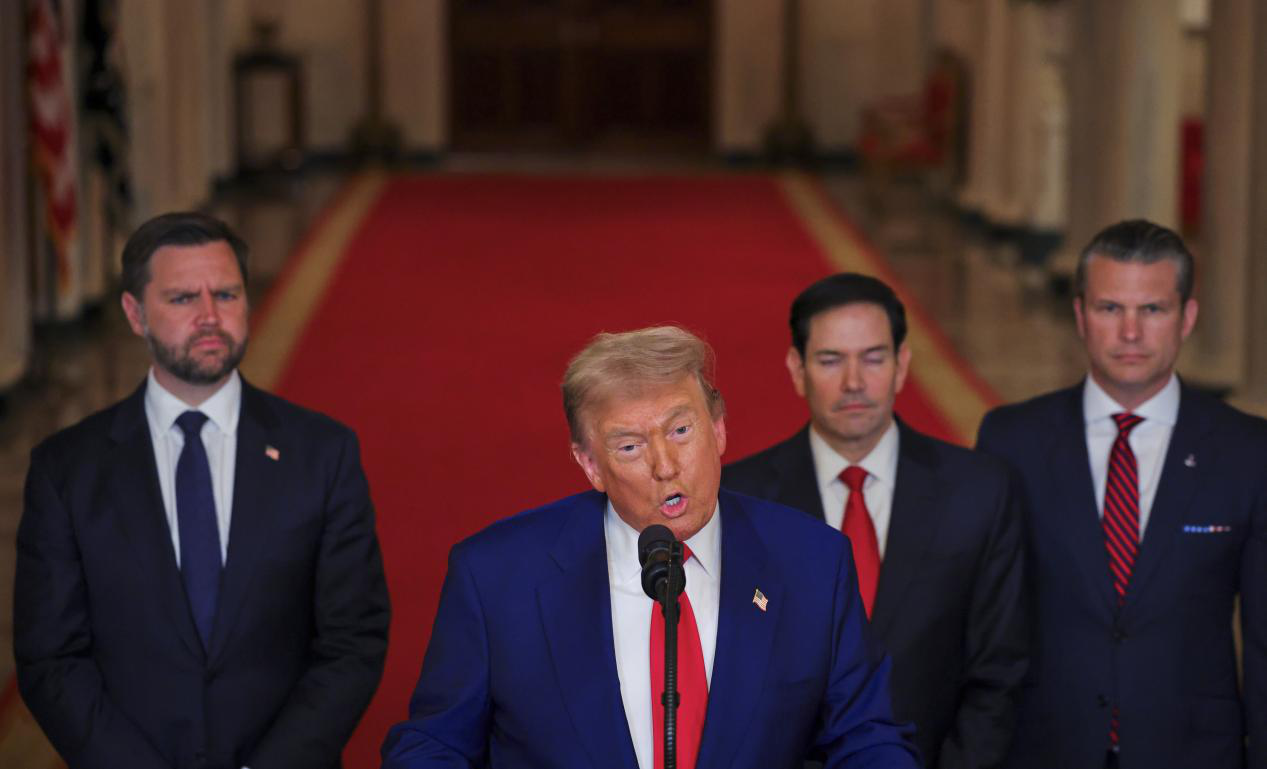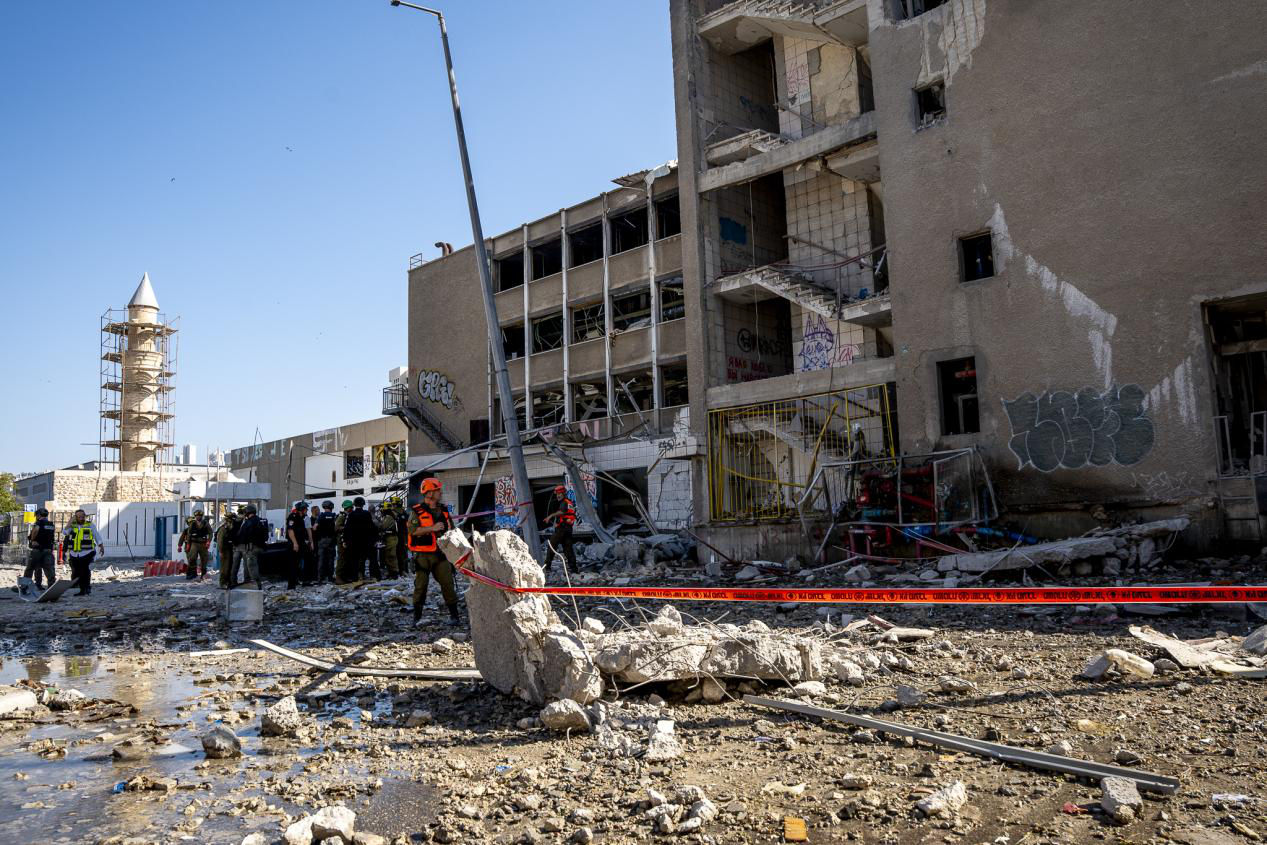"Tonight, I can report to the world that the strikes were a spectacular military success. Iran's key nuclear enrichment facilities have been completely and totally obliterated."

At 22:00, June 21 (America Eastern Standard Time), accompanied by Vice-President J.D. Vance, Secretary of State Marco Rubio and Secretary of Defense Peter Hegseth, US President Donald Trump declared a "victory" at the White House.
According to CGTN, three nuclear sites in Iran, namely Fordow, Natanz and Isfahan were bombed by the US's B-2 bombers. However, a senior Iranian state TV official said during a live event that Iran had relocated materials from the three nuclear sites some time ago.
Why does the US decide to bomb Iran?
On June 19 (America Eastern Standard Time), White House Press Secretary Karoline Leavitt said at a briefing that Trump will make a decision on whether he will order a strike against Iran in the next two weeks.
In an exclusive interview with GDToday on June 20 (Beijing Time), Daniel Levy, Former Senior Advisor in the Israeli Prime Minister's Office said that the "consideration in two weeks" is probably a camouflage that disturb judgement to the current situation.
In his opinion, on one hand, Israel has convinced the US that Iran will give up more, if the US decides to bomb. On the other hands, the US is crucial in supplying the weaponry to Israel and the US plays an active role in helping to identify, share intelligence, intercept missiles coming.

"Almost all of Israel's weapon are from the US," said Dr. Seyed Sadegh Emamian, co-founder and former director of the Governance and Policy Think Tank in an exclusive interview with GDToday.
"Now there is a constantly shifting position from the US administration, particularly Trump himself is coming into the news. And sometimes because of Trump's very ego-seeking personality, sometimes because of its opportunistic approach that he is looking for what is happening on the ground and he is going at the end of the day to be seen as the hero," Dr. Seyed Sadegh Emamian stressed.
In addition, some experts indicated that Trump launch the bomb is to deliver military threat to Iran.
"Cautious voices are warning against repeating the mistakes of the Iraq war, an alarm that's growing louder by the day," said Levy.
What is next for the Iran-Israel conflict?
UN Secretary-General Antonio Guterres made an statement after the air-strike happened, saying, "I am gravely alarmed by the use of force by the United States against Iran today. This is a dangerous escalation in a region already on the edge – and a direct threat to international peace and security."
Insider said the United States had a conservation with Iran after the attack, claimed that this air-strike was decided and conducted by the US itself, but the US has no intention of regime change.
Yemen's Houthi group said in a statement on Saturday that it would target U.S. ships if Washington attacks Iran.
"If America is involved in the attack and aggression against Iran... the armed forces (Houthi forces) will target its ships and battleships in the Red Sea," Houthi military spokesperson Yahya Sarea said in the statement, aired by Houthi-run al-Masirah TV.
Iranian Foreign Minister Seyed Abbas Araghchi said that the U.S. strikes on Iranian nuclear facilities were "outrageous" and "will have everlasting consequences."
At present, the Iran-Israel conflict has kill over 400 Iranians and left 3,056 others wounded, according to media reports.

"Among the injured, 2,220 have been treated and discharged from Ministry of Health hospitals, while 232 received outpatient care at the scene of the attacks," Hossein Kermanpour, head of the Iranian Health Ministry's public relations, said in a post on social media platform X.
According to the health official, the majority of the casualties have been civilians, with 54 women and children among those killed in the Israeli strikes.
Reporters: Yuan Zixiang, Liu Xiaodi, Zhang Ruijun
Editors: James, Shen He, Monica
Photos: Xinhua
















